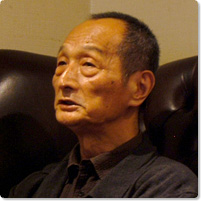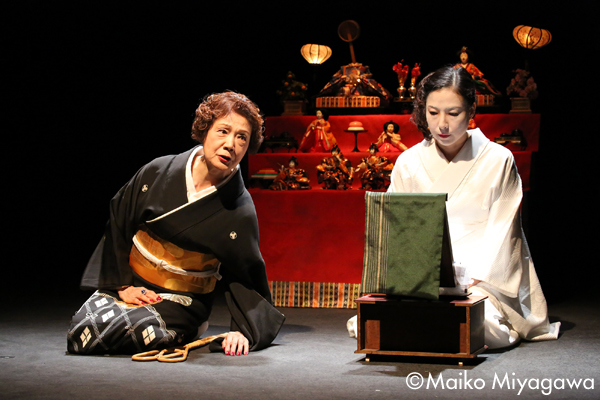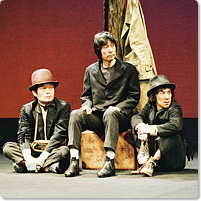Minoru Betsuyaku

Minoru Betsuyaku
Born in former Manchuria (northeastern China), Betsuyaku dropped out of Waseda University’s School of Political Science and Economics. He was influenced by Beckett’s Theater of the Absurd and founded the Waseda Shogekijo company together with Suzuki Tadashi. His plays Zo (The Elephant, 1962) and Macchi uri no shojo (The Little Match Girl, 1966) were highly acclaimed and he won the 13th Kishida Drama Award for Akai tori no iru fukei (A Scene With a Red Bird, 1967). In 1971 he won the Kinokuniya Theater Award for Machi to hikosen (A Town and an Airship) and Fushigi no kuni no Arisu (Alice in Wonderland). The following year he won the “New Artist” award of the Ministry of Education’s Selected Artists Encouragement Awards for Soyosoyo-zoku no Hanran (revolt of a gentle family), and in 1987 he won the Yomiuri Literature Award for his collection of plays titled Shokoku wo Henreki Suru Futari no Kishi no Monogatari (tale of the foreign travels of two knights). In 1988, his play Giovanni no Chichi e no Tabi (Giovanni’s journey to his father) won the Minister of Education Award for the Arts. As of 2013, he has completed 138 works, including plays, children’s stories, and humorous essays. His nonsense “—zukushi” series, including titles such as Mushi-zukushi (A World Full of Bugs), which turns conventional biology on its head, Mononoke-zukushi (A World Full of Ghosts) about the true nature of ghosts in ancient and modern Japan, and others on animals, birds, and fish, was a big hit. Other works such as his criminology essay Hanzai shokogun (Criminal Syndrome), an astute analysis of the darker mechanisms at work behind sensational crimes, reveal the full breadth of Betsuyaku’s creative and intellectual interests.



